| |  | | | Israel Strikes Qatar: What It Means, What's Next By Winfield Myers ● Sep 10, 2025 Smart Brevity® count: 7 mins...1917 words We devote this issue to Israel's September 9, 2025, strike on Hamas's leaders in Doha, Qatar. Gregg Roman contributes three articles, led by an extensive analysis of Qatar's years of duplicity. Roman argues the strike was both justified and long overdue—no more "five-star jihad." "The age of consequence-free terrorism," he writes, "is over." Hussein Aboubakr Mansour sees the strike as the revision of a system based on internal contradictions. Washington's backing of Israel's actions "revealed the limits of managed incoherence." Michael Rubin contributes two articles in which he, first, urges Qatar to use the opportunity at hand to "promote moderation over extremism" and transform itself into a "force for stability in the region." In his second, he warns Turkey that its NATO membership may not protect it or the Hamas leaders it harbors from Israeli retaliation. Also included is an analysis of Israel's strike by Lazar Berman, and a wide-ranging and prescient speech on confronting Qatar and other threats delivered by Jim Hanson at last week's National Conservatism Conference in Washington, D.C. | | The Reckoning in Doha: Why Israel's Strike Against Hamas Was Both Justified and Overdue 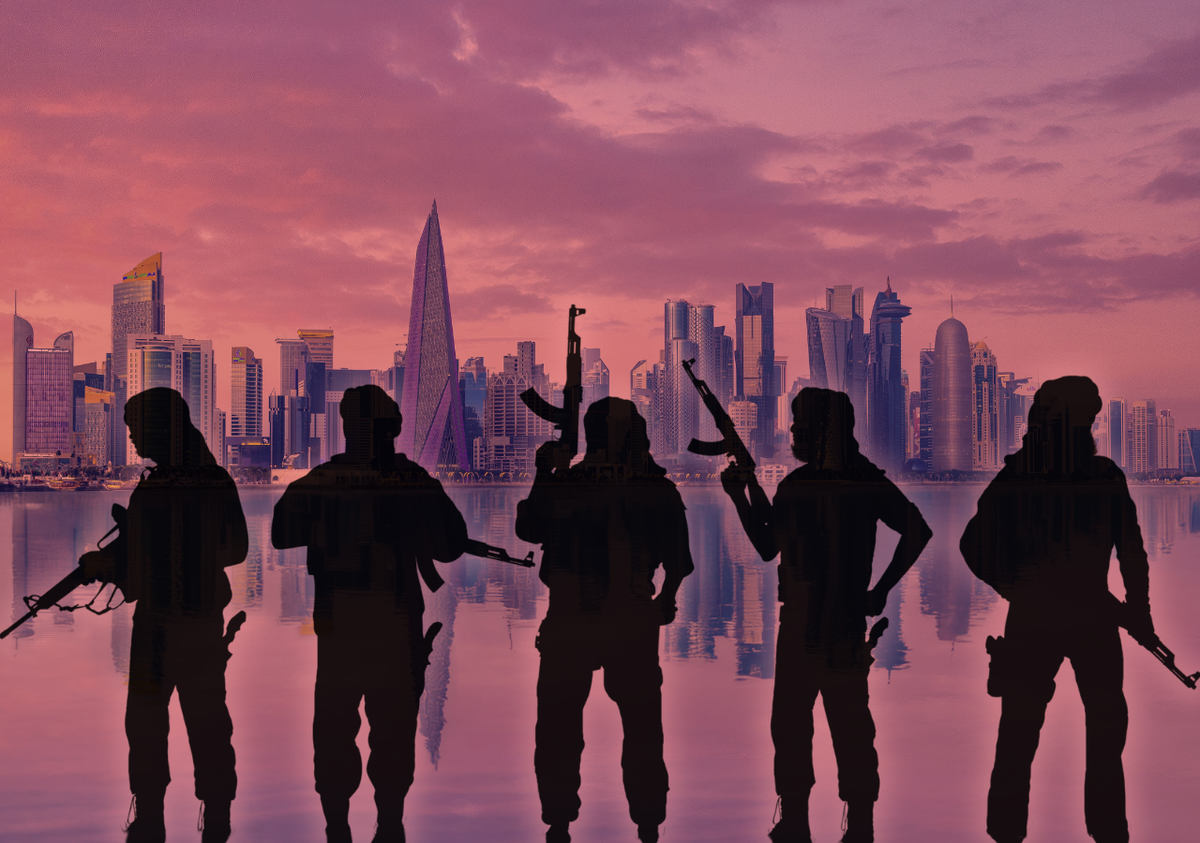 By: Gregg Roman The explosions in Doha's Katara District on September 9, 2025, shattered Hamas's illusion of safety, as Israel targeted its leadership living in Qatari luxury. They marked a restoration of moral clarity in warfare. Why it matters: For nearly two years, Hamas masterminded terror from Doha, exploiting diplomatic immunity and Qatar's supposed alliance with the U.S. The big picture: Wars end when one side loses the will or ability to continue fighting. -
For Hamas, that calculus has been distorted by Qatar's provision of an extraterritorial sanctuary where its leadership could direct operations, manage finances, and plan attacks while remaining physically removed from consequences. -
The strike disrupts this arrangement, reinstating accountability and ensuring that leadership does not equate to invulnerability. -
By targeting Hamas in the heart of Doha, Israel demonstrates that justice transcends borders. What's next: The path forward is clear. Hamas must surrender unconditionally, release all hostages immediately, and accept the dissolution of its military apparatus. -
Hamas's leaders, wherever they hide, now understand a fundamental truth: you can run, but you cannot hide forever. -
And when justice finds you, whether in a Gaza tunnel or a Qatari hotel, the result will be the same. To read the full report, click here. | | Israel's Strike on Hamas Leaders' Qatar Haven Was an Overdue Act of Justice 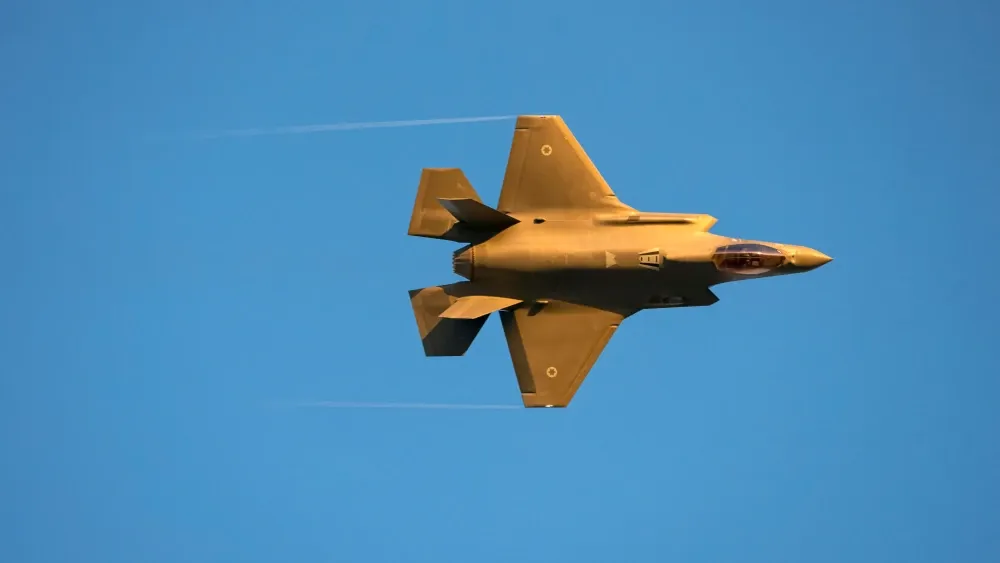 By: Gregg Roman Israel's precision strikes against the leadership of Hamas, men who plotted the October 7 atrocities from hotel suites, wasn't "escalation" but overdue justice. Why it matters: The strikes shattered more than glass—they shattered the illusion that masterminds of mass murder can recline in five-star safety and call it "diplomacy." The big picture: Qatar's role hasn't been mediation but enablement. -
Since 2012, Doha funneled roughly $1.8 billion into Hamas-ruled Gaza, including monthly $30 million cash drops purportedly for "humanitarian aid," which were redirected to fund terror activities. What's next: Hosting Hamas now carries costs, and regional actors must recalibrate. To read the full article, click here. | | The End of the Five-Star Jihad in Qatar 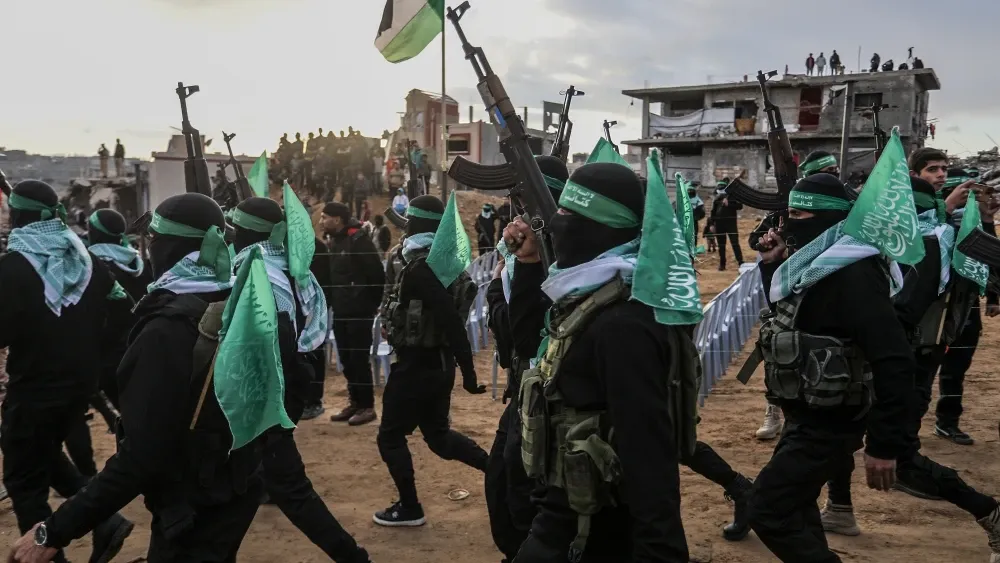 By: Gregg Roman Israel struck Hamas in Doha on the morning of September 9, 2025, targeting the terror group's senior leadership. This operation, which killed the architects of the October 7, 2023, attacks, was an act of overdue self-defense. Why it matters: The strike dismantled a command center that directed a genocidal campaign from the safety of a five-star hotel, exposing Qatar's role in giving Hamas legitimacy. The big picture: Qatar's actions were not mediation but enablement, providing financial, diplomatic, and operational support to Hamas. -
From luxury suites, Hamas leaders like Khaled Mashaal held court with foreign delegations, using Al Jazeera as a propaganda tool, thus gaining a false sense of legitimacy. What's next: For Qatar, this is a reckoning. For years, it played a cynical game, funding American universities and terror movements. It hosted the World Cup and Hamas. That game is over. To read the full article, click here. | | System Revision? Israel Targets Hamas Leaders in Doha 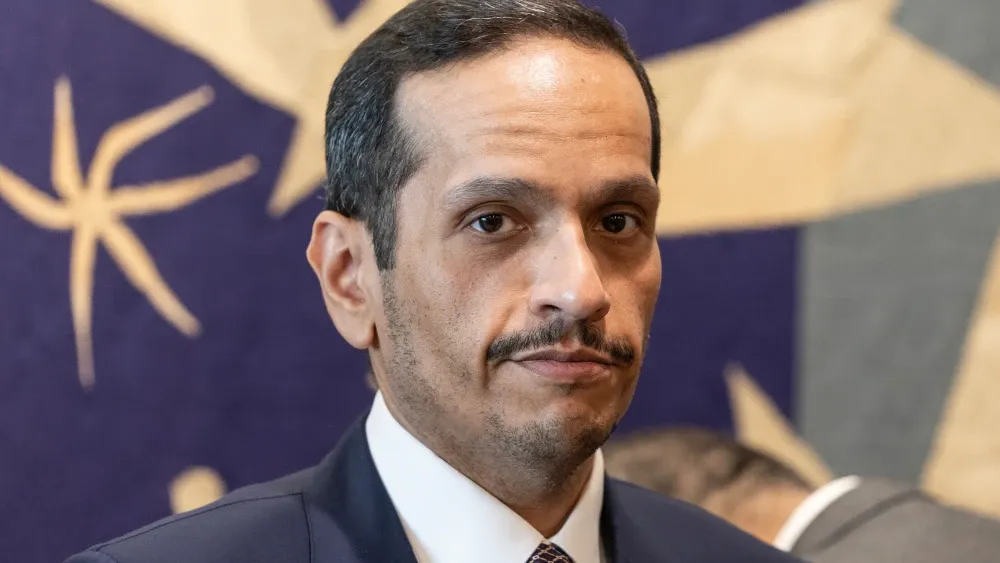 By: Hussein Aboubakr Mansour Israel's strike on September 9, 2025, targeted senior Hamas leaders in Doha, exposing Qatar's duplicity in shielding terrorists under the guise of diplomacy. Why it matters: Qatar's foreign policy turned its vulnerability into leverage, hosting Islamist actors like Hamas to remain indispensable to regional and global powers. The big picture: Qatar's strategy of ambiguity allowed it to straddle alliances with both Islamist groups and Western powers, notably the U.S. -
The scale of Hamas's crimes crossed a threshold Israel could not accept, sparking an international effort to restrain Jerusalem and preserve the system. -
Yet Washington ultimately backed Israel and, in doing so, revealed the limits of managed incoherence. What's next: What has long been presented as insoluble but stable may, under new strategic preferences in Washington and Jerusalem, become subject to revision rather than endless maintenance. -
Under Trump, especially, the American role could be shifting from endless management to the pursuit of outcomes, even if those outcomes fracture the very system Washington once labored to preserve. To read the full article, click here. | | Doha Strike a Huge Blow to Hamas and Qatar, Opportunity for Israel … If It Succeeded 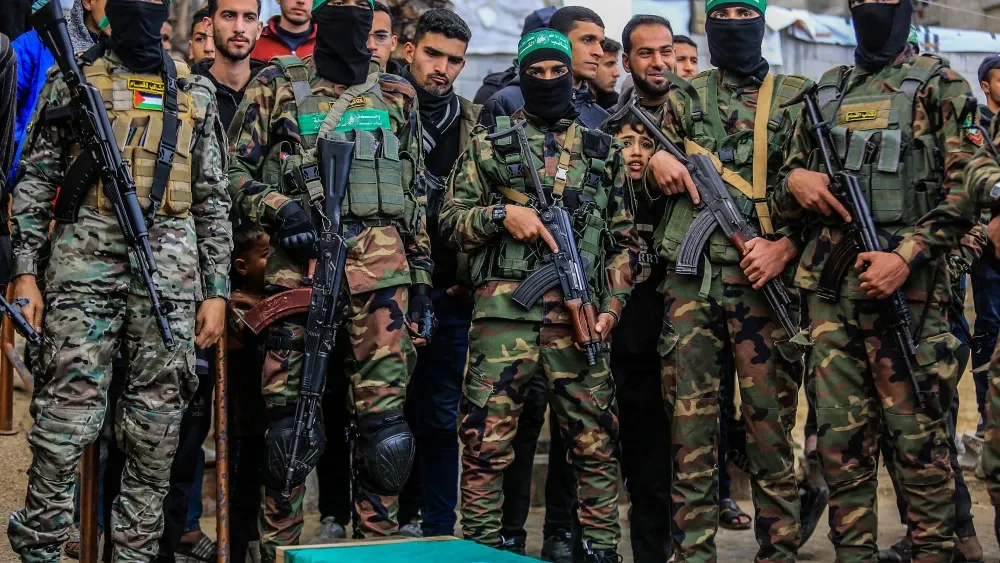 By: Lazar Berman In the war against Iran and its allies since October 7, 2023, Israel has systematically eliminated key enemy leaders, including Hezbollah's Hassan Nasrallah and Iran's top generals. Why it matters: Israel's precision strikes have shifted the balance of power, taking out senior figures in Hezbollah, Iran, the Houthis, and Hamas. The big picture: Qatar's duplicity in hosting Hamas leaders under the guise of mediation has been shattered, as Israel demonstrates that no sanctuary is beyond reach. -
Regardless of how Qatar responds, it has suffered a massive blow. -
This action underscores Israel's determination to end the war by decapitating the leadership of its adversaries, even on foreign soil. What's next: With Qatar's previous position undermined, Egypt may play a more dominant role in mediating future talks between Israel and Hamas. -
If Hamas's remaining leadership was wiped out, new opportunities would open up for Netanyahu and Trump. Publicly, at least, their goals are aligned. To read the full article at the Times of Israel, click here. | | Qatar Should Seize the Opportunity for a Fresh Start  By: Michael Rubin After nearly two years of frustration with Hamas's refusal to release hostages, Israel's bold strike in Doha has shattered Qatar's facade of neutrality, exposing its role in supporting Islamist terror. Why it matters: Doha has never been a neutral negotiator. Senior Qatari officials have always wanted Islamist ideologues to win and liberal democracies to lose. The big picture: Under Sheikh Tamim's rule, Qatar has leveraged its wealth to back radical ideologies while pretending to mediate peace. -
His mother, Moza bint Nasser Al-Missned, the head of the Qatar Foundation and one of the three consorts of former Emir Hamad bin Khalifa Al Thani, sets in practice the ideology and provides the resources. -
Now, Sheikh Tamim must choose: continue his mother's radical path or pivot towards moderation and stability to avoid international isolation. What's next: Qatar is about to cross the Rubicon. No longer can it have it both ways, buying broad immunity while sponsoring extremism absent accountability. -
Israel's strike on September 9, 2025, may have been limited, but it shreds a red line. -
Embracing moderation could transform Qatar into a regional peace broker, but doubling down on extremism will only lead to isolation and conflict, threatening its ambitions on the world stage. To read the full article, click here. | | Israel Just Struck Hamas in Qatar: Turkey Could Be Next 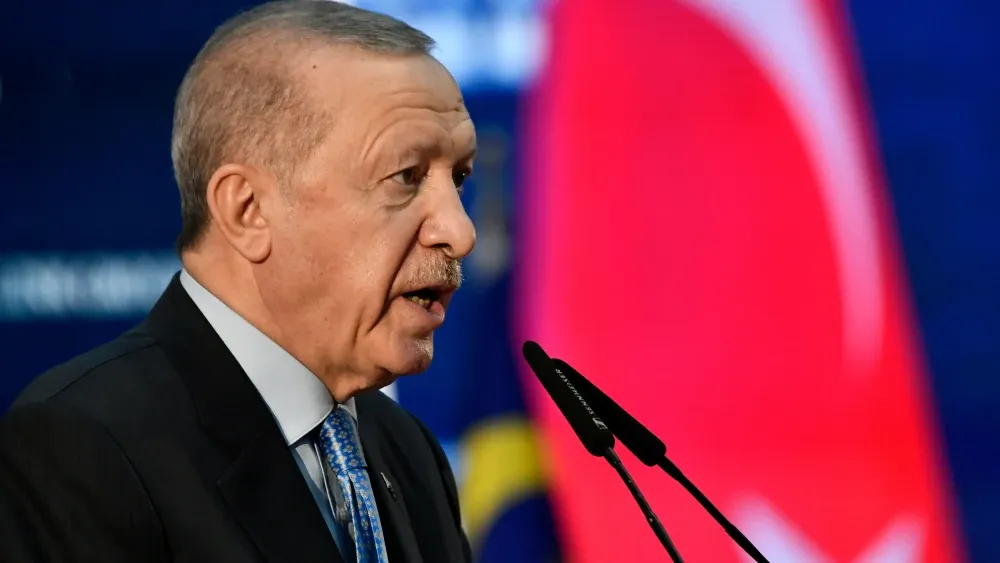 By: Michael Rubin Israeli forces recently attacked Hamas targets in Qatar, shattering the illusion of safety for Hamas leaders in Doha and signaling Israel's commitment to dismantling terror networks. Why it matters: Qatar's role as a mediator shielded Hamas leaders, but Israel's decisive action reveals their vulnerability and challenges Doha's duplicity. The big picture: Both Hamas and Turkey may believe Turkey's NATO membership offers immunity that Gaza, Iran, and Qatar did not. Qatar may have been a Major Non-NATO Ally, but it was not NATO. What's next: A veto in Stockholm or Helsinki is a plausible option. So too is a Washington veto, notwithstanding President Donald Trump's close personal and business ties with Turkish President Recep Tayyip Erdoğan. -
Self-defense provisions do not apply to an aggressor. If Turkey acts by terrorist proxy—and that is what Hamas effectively is—then Turkey essentially fired the first shot, and Israel is right to respond. -
If Turks are wise, they will either extradite Hamas now or, for their own safety, stay at least 150 feet from any structure hosting Hamas. To read the full article, click here. | | Confronting Qatar, the Muslim Brotherhood, and the Global Caliphate Project 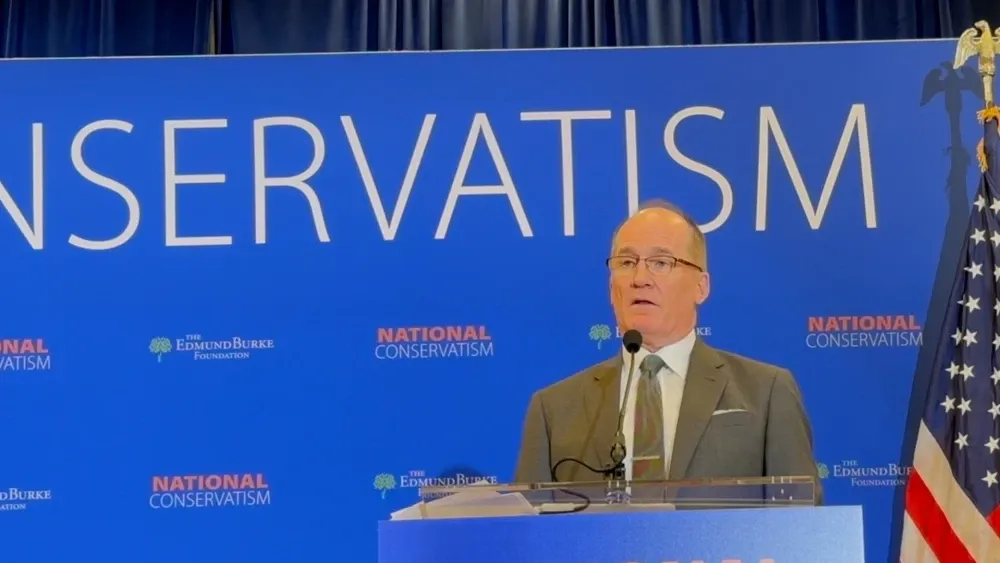 By: Jim Hanson At the National Conservatism Conference, MEF chief strategist Jim Hanson delivered a timely speech condemning Qatar for financing Hamas and harboring its leaders in Doha. Why it matters: Hanson's critique comes amid growing frustration with Qatar's duplicity in supporting Islamist groups while posing as a mediator. The big picture: Hanson's address calls for a robust U.S. policy that isolates Islamists while rewarding moderate Muslim allies. -
He emphasizes using economic, diplomatic, and cultural measures to counter Islamist ideologies that threaten American values and security. -
Hanson: "But rather than a Caliphate by Conquest, we are more threatened by the civilizational infiltration we have seen in many Western countries. The U.K. is really the canary in the coal mine, having essentially submitted to its Muslim migrant population." What's next: Hanson advocates for an uncompromising stance against Islamist ideologies, urging the U.S. to sever ties with nations that fund extremism. To read the full text of the speech and watch it, click here. | | Thank you for relying on the Middle East Forum for up-to-date analyses of the region. If you enjoyed this issue of the MEF Dispatch, please forward it to a friend. We invite you to use the comments feature to let us know your thoughts on the Dispatch and the issues we cover. Sincerely, Winfield Myers
Managing Editor, Middle East Forum
Director, Campus Watch | | | | Was this edition useful?  

Your email will be recorded and shared with the sender |        MEF, an activist think tank, deals with the Middle East, Islamism, U.S. foreign policy, and related topics, urging bold measures to protect Americans and their allies. Pursuing its goals via intellectual and operational means, the Forum recurrently has policy ideas adopted by the U.S. government.
Copyright © 2024 Middle East Forum, All rights reserved.
Our mailing address is:
Middle East Forum
1650 Market Street, Suite 3600
Philadelphia, PA 19103 | | | | | Powered by 
| | This email was sent by Middle East Forum via Axios HQ | | | |
0 коммент.:
Отправить комментарий